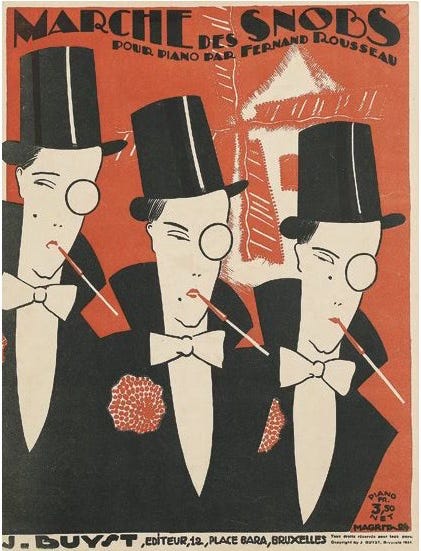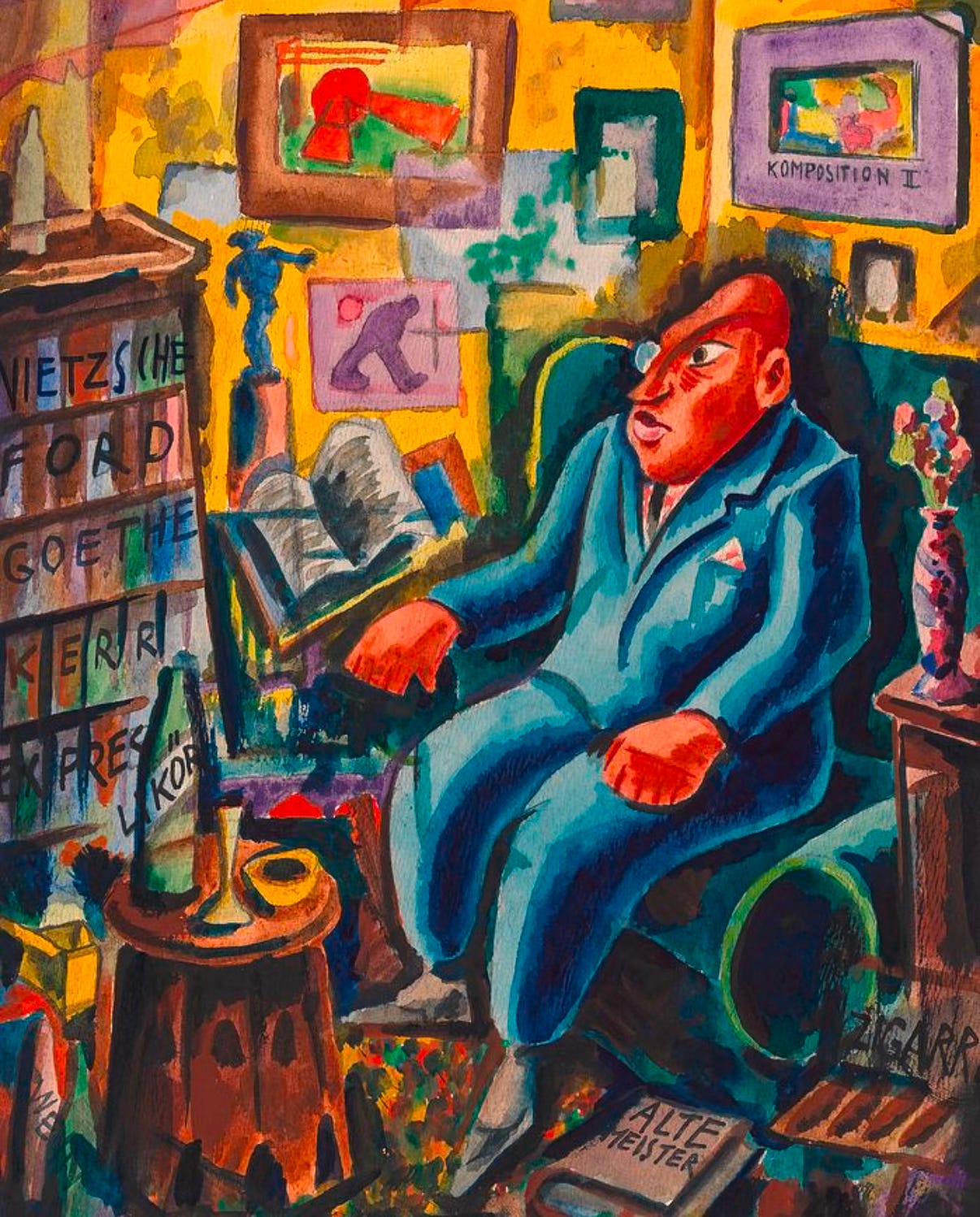I have a soft spot for genuine snobs. Because everything can be faked, even snobbery. True snobbery is an art, an unapologetic assertion of taste, distinction, and preference. It doesn’t grovel for approval or strive to impress — it simply exists, like an aristocratic family crest or an unyielding heirloom. Genuine snobs inhabit their standards with effortless authority. They aren’t trying to gatekeep the world for the sake of it; they are merely upholding a worldview that is refined, if sometimes absurd. It’s the counterfeit snob who ruins the allure: desperate for validation, tediously over-explaining their choices, and mistaking pretence for style.
Snobbery in the past had a certain grandeur, a romance almost. It was a signifier of cultural belonging, a way of aligning oneself with ideas larger than mere individualism. The 19th-century snob was perhaps an aesthete, sipping imported tea while decrying the vulgarity of factory-made lace. To be a snob then was to belong to an aspirational hierarchy of values — appreciating fine literature, art, and music, sometimes at the expense of humanity itself. The danger, of course, was the exclusion it fostered, but the authenticity of past snobbery lay in its rootedness in a coherent system of thought. It reflected a deeper engagement with culture, however flawed.
The modern landscape of snobbery, by contrast, feels more transient, as though its practitioners are constantly refreshing their credentials to stay relevant. Authentic snobs, however, remain gloriously indifferent to the ebb and flow of trends. I once met someone whose collection of antique maps bordered on obsession. He spoke of cartography not as a status symbol but as a love affair with human ingenuity and the art of exploration. He didn’t care if anyone else shared his fascination; the maps spoke to him, whispered stories of forgotten territories, and demanded nothing more than his attention. This kind of snobbery — intimate, self-contained, and quietly luminous — is a far cry from the hollow proclamations of social media influencers who mistake aesthetics for taste.
It’s also worth considering the joy that genuine snobbery can bring to others. While performative snobs push people away, true snobs, paradoxically, can invite us into their worlds with unexpected generosity. The devoted oenophile, for instance, who opens a bottle of something extraordinary and insists you try it, not because they want to prove their superiority but because they want you to feel something: a depth of flavour, a memory unlocked, an experience that lingers. Genuine snobs, in their refusal to settle for the mundane, remind us of life’s potential for astonishment. They are critics of complacency, pushing us to see, taste, hear, or read beyond our usual horizons.
The positive side of snobbery is its potential to uphold standards in an age of mediocrity. A true snob is often a guardian of craftsmanship, beauty, and the things that make life more than merely functional. They remind us that not all pleasures are created equal, that some things are worth striving for simply because they elevate the human experience. The snob, at their best, is a champion of discernment, rejecting the homogenisation of taste in favour of the specific, the rare, and the meaningful. They can be frustrating, yes, but they challenge us to look closer and think harder about what we value.
So yes, I like genuine snobs. I like their unapologetic devotion to what they find beautiful or excellent, even if I disagree. They rarely irritate me (maybe because I am a snob?!), but they also inspire me to look beyond the easy, the accessible, and the cheap. Genuine snobbery, at its core, is about love — love for quality, tradition, or an idea of how life should be lived. And if that’s a little infuriating, well, perhaps it’s also what keeps things interesting. After all, in a world that sometimes feels paper-thin, the true snob offers a refreshing depth. They may be maddening, even ridiculous, but they’re also a reminder that devotion — no matter how eccentric — is still one of the most human things there is. And for that, I’ll take the snobs, quirks and all, every time.
Unashamedly selective,
T.






This is such an incredible take. I don’t think I’ve ever seen snobbery framed in such a nuanced and almost affectionate way. I love how you’ve redefined it as a kind of reverence for craftsmanship and meaning rather than the shallow superiority it’s so often associated with. That idea of a true snob being someone who simply inhabits their standards without needing validation, it’s brilliant and feels so true.
And your point about genuine snobs inviting us into their world with generosity instead of exclusion? I think that’s where the magic lies. It’s not about saying “I’m better than you,” but “Look at this incredible thing I’ve found, let me share it with you.” There’s something so life-affirming in that.
Thank you for sharing this. It’s such a refreshing, thought-provoking perspective. And honestly? If loving this piece makes me a snob, I’ll wear the title proudly.
I’m afraid we might be soulmates